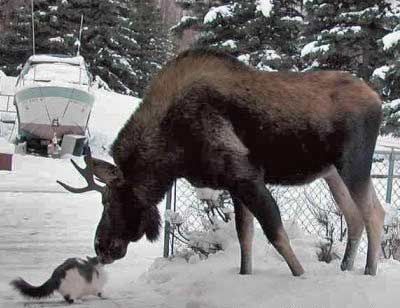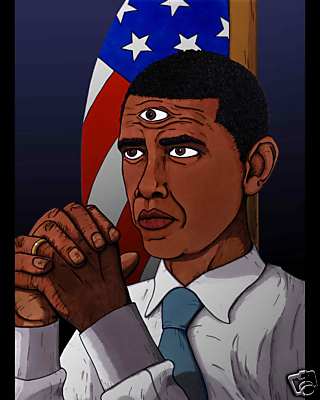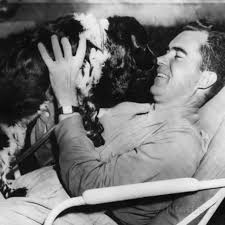I finished reading this book — The Forgotten Network, on the history of The Du Mont television network, and am currently reading The Fourth Network, on the history of the Fox Television network. It’s a curious thing that conceptually there are a few ways you can say that they are part of the same story.
Over the past decade, I’ve noticed this springing up of commentary to the effect that Television has actually entered something of a Golden Age. You can list a long list of programs of a depth that simply would not have been shown previously. This suggests, whether these commentators fully recognize this or not, and sometimes they do and sometimes they don’t, that there had been a “Dark Ages” for television — not really recognized ass uch. And I guess there was.Â
Definitions are tough, and what we’re ambling for is explanations for how market forces allow and don’t allow for particular efforts to make the light of day — I will put the “Dark Ages of Television” down from the fall of the Du Mont television Network up to the concurrent establishment of Fox alongside the establishment of Cable Television as a viable entity. This is a somewhat insane proposition — surely the need to dump programs onto that mythical “500 channels” continues the necessary “Vast Wasteland” aspect of television as it had been in three networks. And I’m giving credence to a television network that, for in the instance, in the mid 1990s filled scheduling holes with such efforts as “When Animals Attack” and “World’s Wildest Car Chases”, and that ilk, and we see them cloning not just one but two new derivations of the already deriviative “Family Guy”. Surely good programs were pumped out in that 30 year span I defined, and surely today most popular programming includes “Dancing with the Stars”. But there’s long been something weirdly inorganic about how television operated. The economics dictated that the most profitable ventures were sitcomes that could hold on for 100 episodes, and thenn be spun off into second run syndication. Only now is it standard for the possibility that a show can come on the air with a fixed end point (Ugly Betty), and a show that is not popular in the broadest of senses can be spun off into a money making dvd collection — see Arrested Development.
Most importantly, we have come to the breaking point away from the commercial mandate to pull in a 30 share. Such a thing is an absurd propsosition, but it was the norm and status quo. For the past few decades, the buzzword has become that the market is “segmenting”. The thing is, in the era of television being our Mass Media, the concept of how we viewed televison conceptually was a flue, evolved out of regulatory decisions made as television established itself. To wit, from the Du Mont book:
The number of channels in each market was limited because of the technology by which television signals traveled as electromagnetic waves that operated on particular frequencies, or channels. It was the FCC’s job to regulate these airwaves and assign frequencies. In June 1945, the commission decided to set aside only thirteen television channels in the VHF portion of the electromagnetic spectrum. However, no city had more than seven stations because the FCC could not assign adjacent channels (except for channels four and five) in the same city. Stations operating on identical or nearby frequencies interfered with each other. In fact, the FCC found that even stations 150 miles apart had problems if they were operating on the same channel. FCC engineers understood the only solution was to assign VHF channels that were spaced far away from each other. So, for example, the commission allocated the city of Washington, DC four stations: 4,5,7, and 9. Because of the problems of adjacent channel interference, that left Baltimore only three channels: 2, 11, and 13.
Following that came the inevtiable licensing freeze to figure out how to allocate the newly, and as it turns out due to the UHF band’s existence artifically, limited airspace. Allan Du Mont recognized these harsh strictures, and argued for a more even balance of VHF dominated regions and UHF dominated regions, lest the UHF frequencies become ghettoized. But the major Radio Corporations — CBS and NBC — had their way. It was a fait accompli that only three television networks would survive the 1950s, and that CBS and NBC would be two of them. It was there even money which would be that third network: Du Mont or ABC. The winner was the network with the more commited minority share-holder corporate partner that would infuse the capital investment at the proper moment.
The book about Du Mont gives way to a run down of its “break-through” television programming. Captain Video — can you call this good? It’s hard to figure a kids’ space show that habitually bid time by spotting ten minutes in the middle of the program with the Space Captain hereo catching up on how his “Western Rangers” are doing, ala viewing whatever Western B movies were readily available. Yet, the revamp brought it the producer with this weird idea that this show should have “redeemable value”, and fielded scripts by the likes of Arthur C Clarke.
The only surviving film of Ernie Kovak at Du Mont (or rather the New York affiliate) is housed at UCLA. Isn’t the Internet supposed to be the “Information Superhighway” where such cultural artifacts are made available for the lay public? Well, whatever — it’s described here and there on the Internet, and you can place it alongside oh, this (waiting for the Terry Gilliam animated foot to splat down), or this music video.
The History of Du Mont is the history of a man and his company running up against the buzz saw of an FCC regulatory commission making decisions on the behest of of radio giants CBS and NBC. The history of the Fox Network is the history of a man and his company (s) charging forward alongside an FCC regulatory commission making decisions beneficial to him and his interests.
Or, so goes my cynical explanation.
In the interim, the Du Mont network never quite went away — though, I guess Allan did. The constellation of major city VHF broadcast stations remained, Du Mont changing its name to “Metropolitan Broadcasting” and then to “MetroMedia” — to move away from the smell of failure. As the largest constellation of “independent broadcasters” in the nation, a reach of 23 percent of the nation, that made forays into syndication efforts, it might just have been — by default — the fourth largest commercial television network — still. Nobody is ever going to write a book about Metromedia. Their mainstay was what most independent stations were — second run syndications reruns of network shows counter-programmed against network evening news broadcasts, and large supplies of old movies from various outlets. Its production of new material for broadcast and syndication distribution was sometimes seen as signs that they were trying to create a fourth television network, sometimes simply a matter of trying to create profitable programming. An example of original programming, a description of a television special from 1970 entitled 1985:
unless social and economic reforms were immediately effeted, the world of 1985 could expect such catastrophes as poer blackouts resulting in “civil war” between police and looters, martial law in Chicago, food and water rationing, DDT poisoning, killer smog, “black plagues” caused by poor public sanitation, and thousands of deaths in Mexico from rampaging dysentry.
Huh. In the early 1980s, Metomedia made its most concerted and definitive effort to proceed and grow into a “fourth network”. As so happened, sitcoms had gone out of fashion in the television network universe, and as five year old sitcomes had been a major blood – line for independent stations, Metromedia jumped into the breach with… Small Wonder.
Huh. One matter of curiosity about these 1980s ventures of trying to formulate a fourth television netowrk — I don’t know where it was determined that the essential first ingredient for a newly launched television network was to be a late night talk show. Metromeida rolled out its effort, Alan Thicke and “The Thicke of the Night”. He met with that predictable fate that every competitor against Johnny Carson met.
So when Rupert Murdoch bought Metromedia with the purpose of using these valuable VHF major market channels — and its 23 percent national reach — as the nucleus for Fox — the programming library that came with it was largely a nuisance, though I guess there is value in that Murdoch gets to pocket money whenever a tv retrospect airs about the “Worst Shows in TV History” and shows snippets of Small Wonder — Fox launched with the Late Show Starring Joan Rivers (guest: Pee Wee Herman), to great fanfare and hooplah. She lasted seven months, just barelymaking it past the launch of Fox’s prime-time line up of Married with Children and, um, a sketch comedy series from a British lady that housed bizarre two minutes clip such as this and this, which the network decided to give a 20 year run for some strange reason.Â
Looking at the Joan Rivers situation, I gather she was — in one sense — a qualified success. She got Fox to launch on over 80 percent of the country, these “independent” station groups willing to throw their weight behind a known enough commodity standing before a promise of future television line-ups that’d be moved into their station as the network expanded. Indeed, her ratings just might have been marginally passably par, Fox able to claim that they had a “credibile alternative” of counter-programming, but that she cultivated a horrible relationship and got along personally bad and was unbearable with everyone at the fledgling network. The better counter-programming that turned up that Fox had to kicking themselves for not signing (and still just might be) came as the network rolled through the end of the talk show with guest hosts. They missed the opportunity when they failed to sign this guy. Woof Woof Woof. Had they managed to sign him, they would have avoided that Chevy Chase debacle of a few years later. (Indeed, I googled to find an answer to a question I had about the creation of the Fox affiliate where I grew up, and see that Arsenio Hall fit the brand so well he tended to be falsely identified as such. Curious note, if I recollect this right: Arsenio Hall was aired at that dreaded 10:00 time that got Jay Leno into so much trouble.)Â
It is there with the history of Joan Rivers –in the distant past now, but the independents that started with Fox still tended to pull in more profit off of their odd assortment of programming than Joan Rivers, and with Chevy Chase that we get the current retiscense to the idea of signing Conan O’brien to do a late night stint. The Chevy Chase situation was apparently compunded with a strain in affiliate relations that occursed by repercussions when Fox signed the deal to get NFL football — the network was still short of the contractually obligated nationwide reach, and had to make a fast deal with New World to gain a group of stations to close the gap down — which lead to dumping a bunch of affiliates for the new ones. Murdoch would, ahem, later buy New World when, ahem, further deregulation allowed him to do so — ahem. And so…
But June 1994 was too soon to convince the stations to look at the big picture. There was plenty of bad feeling in the room at the annual Fox affiliates meeting. The dumping of loyal Fox affiliates shook everyone because there was no telling who might be next. This capped a year that included several high profile flops, headed by the Chevy Chase Show. Rubbing salt into the wounds was the fact that the New World stations had affiliation deals that granted them more freedom than the standard agreement. In open defiance of the network — and in particular Salhany, who promised the network had not given up on late night programming — the affiliates voted against any more excursions into late night shows. Said one executive, “We don’t want it, no matter what it is.” — 170 - 171
If it makes things any better, Conan O’brien has the support of a different network’s affiliate in Portland. Also it should be noted that Conan O’brien long paid homage in the early years of his Late Night show to the host of Du Mont’s late night program, the oh so wryly named “Ernie Kovacs Rehersal”, building that same sort of bridge to the network’s long history that Letterman has with the “Ed Sullivan Theater”.





